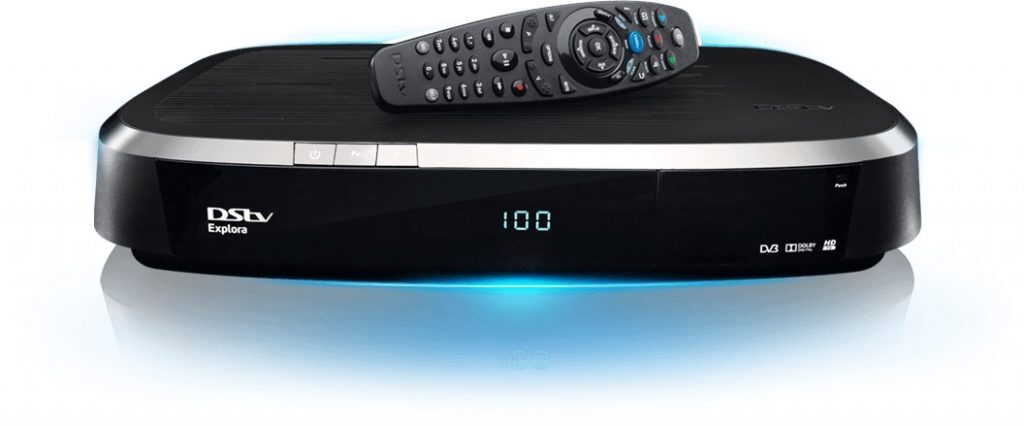Why does a satellite decoder deserve to be included in the annual Most Beautiful Object in South Africa, which has previously been won by dresses, art films and elegant jewellery?
Organised by that creative hive that is Design Indaba, I was asked to nominate something home-grown for this index of beautiful object. This year’s winner is a five-minute steam punk fashion video, oozing the kind of design sophistication that underlies this prestigious award.
The Explora decoder from MultiChoice also deserves such recognition. It is excellent. It might physically be a slimmish black plastic box, but it is the navigation and content design – and the ease-of-use that underpins it – that deserve acknowledgement. Why should good design only be awarded to art or fashion objects? In an age of the iPhone being a fashion statement and eternal praise being heaped on a computer maker (Apple) whose designed (Johny Ive) is arguably more influential than much of the fashion industry and has been knighted, why not a piece of home-grown tech of our own?
The Explora’s clever designs make its content appear as more than just a set-top box, or decoder as they’re known in South Africa. Because we have such appalling broadband penetration and none of the necessary high-speed fibre that enable video streaming services like Netflix to be so compelling, the only form of broadcast that has been used is satellite.
It’s as effective, to be sure, but it is vastly more expensive and complicated. Therefore the satellite service we know as DStv cannot offer the same kind of experience as other broadcasters in countries which have sufficiently fast and cheap such broadband (self-provided by the customer and therefore costing nothing extra for the service provider).
But “the customer doesn’t know that,” explained John Kotsaftis, the CEO of DStv Online, the division that is responsible for the decoder and the raft of new online services that have recently launched.
“Nor do they care,” he continued explaining how he decided to mimic the more-familiar internet-like interface for displaying content. He simplified the interface over all, made it easier and more intuitive to navigate, and he added intelligence.
Kotsaftis, a veteran of MultiChoice parent company MIH’s internet division, brought internet smarts to the legacy business. Legacy perhaps, but necessary given Africa’s internet constraints and the sheer size of the continent.
Additionally, and a master stroke to counter the lure of piracy, DStv broadcasts the hot TV shows immediately after the air in the United States, so that the shows are available immediately (or the next morning) on Catch Up. In HD.
In the words of a notorious content pirate: “it’s so good, I don’t have to steal anymore”.
Indeed, it’s that good. And now, DStv offers an internet connection that enables even more movies and TV shows to be download via the customer’s own internet connection, called Catch Up Plus. And customers can now remotely set their recorder to record via the DStv.com website and a forthcoming smartphone app. Now that’s cool. And deserving of a prize for great design.
Think of the context of this too. This is a South African company, that is already a leader globally in digital broadcasting, that is providing a service throughout Africa effectively and reliably; and, thanks to Kotsaftis and his team, increasingly sophisticatedly.
MultiChoice executive chairman Nolo Letele used to often remark, when he was still CEO, that he yearned for competition so that MultiChoice could show how good it was.
After many false starts, DStv might finally have that, albeit not from other broadcasters, but a media house (Times Media, which owns the FM) and a technology company (Altech).
Both are modelled more on Netflix, the brash upstart in the United States broadcaster wars that has used its internet savvy and understanding of its binge-watching customers to become a serious powerhouse in its own right – including sweeping the Emmy TV awards for its House of Cards show starring Kevin Spacey.
Altech’s Node and Times Media’s Vidi are set-top boxes that can download and stream shows, but it’s too soon to say what competition they will offer.
Where once an internet-online business model would’ve seemed impossible in South Africa, there is a wave of fibre that is coming in the first half of next year. With fast, cheap broadband, who knows what kind of Netflix-like disruption might finally have arrived so Letele can prove his point.
* This column originally in the Financial Mail on 11 December 2014
